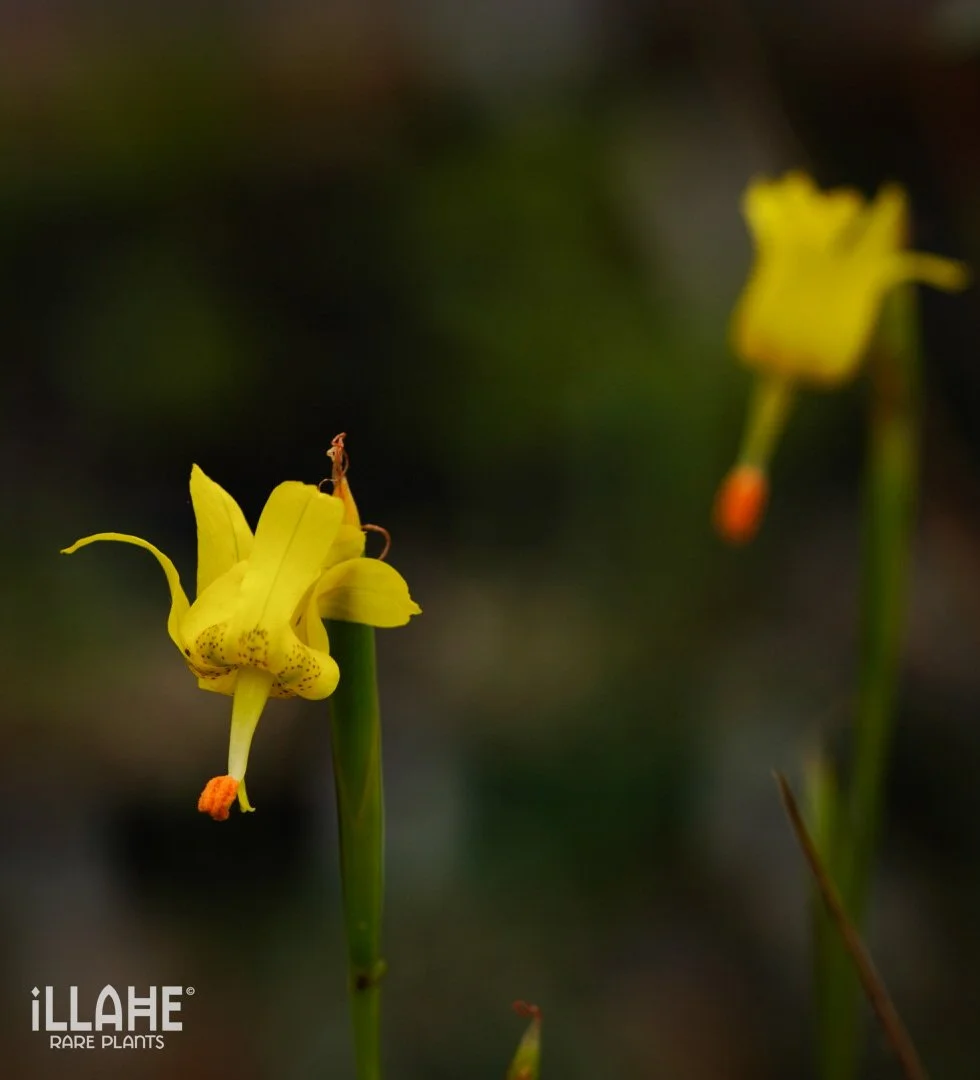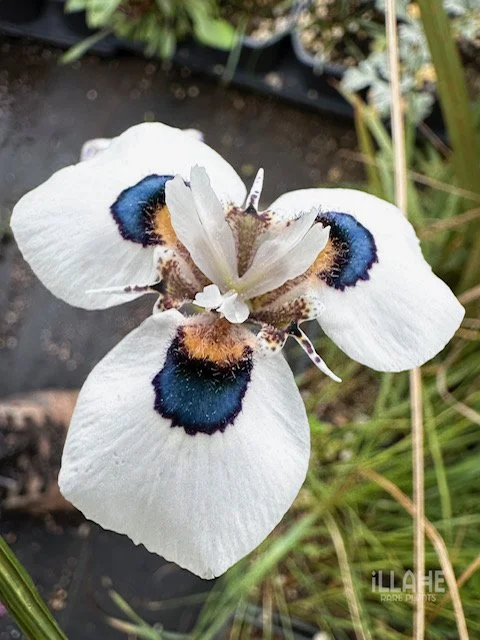
Moraea villosa
A dazzling jewel of the winter-rainfall Cape flora, Moraea villosa is native to the southwestern coastal regions of South Africa, especially in sandy flats and slopes of the Western Cape. It is one of the most striking of all Moraea species, famed for its large, vivid flowers that resemble an iris in form, typically blooming in late autumn to early winter. The blossoms come in a remarkable range of color forms—from lilac, purple, blue, and magenta to creamy white—always with distinctive dark central eyes marked with yellow or orange, making each clone a potential collector’s treasure. My favorite by a long shot, these are seed grown so expect some variability.
This species grows from a small corm and sends up a narrow, pleated leaf that hugs the ground.. Best grown in deep pots or in a well-drained rock garden setting that mimics its natural habitat, Moraea villosa requires a sharply draining soil mix and a dry summer dormancy. During the growing season (fall to spring), water regularly but never allow the corms to sit wet. Full sun is ideal for the best flowering.
Not reliably hardy in regions with severe frost; protect from freezing temperatures below 25°F (-4°C). USDA Zone 9b–10. In colder climates, grow under cover or in a cold greenhouse where winter wet can be controlled, these have been hardy for me down to 12 degrees with frost blankets in a dry unheated greenhouse.. An essential for collectors of South African geophytes or lovers of unusual winter-blooming bulbs.
A dazzling jewel of the winter-rainfall Cape flora, Moraea villosa is native to the southwestern coastal regions of South Africa, especially in sandy flats and slopes of the Western Cape. It is one of the most striking of all Moraea species, famed for its large, vivid flowers that resemble an iris in form, typically blooming in late autumn to early winter. The blossoms come in a remarkable range of color forms—from lilac, purple, blue, and magenta to creamy white—always with distinctive dark central eyes marked with yellow or orange, making each clone a potential collector’s treasure. My favorite by a long shot, these are seed grown so expect some variability.
This species grows from a small corm and sends up a narrow, pleated leaf that hugs the ground.. Best grown in deep pots or in a well-drained rock garden setting that mimics its natural habitat, Moraea villosa requires a sharply draining soil mix and a dry summer dormancy. During the growing season (fall to spring), water regularly but never allow the corms to sit wet. Full sun is ideal for the best flowering.
Not reliably hardy in regions with severe frost; protect from freezing temperatures below 25°F (-4°C). USDA Zone 9b–10. In colder climates, grow under cover or in a cold greenhouse where winter wet can be controlled, these have been hardy for me down to 12 degrees with frost blankets in a dry unheated greenhouse.. An essential for collectors of South African geophytes or lovers of unusual winter-blooming bulbs.






